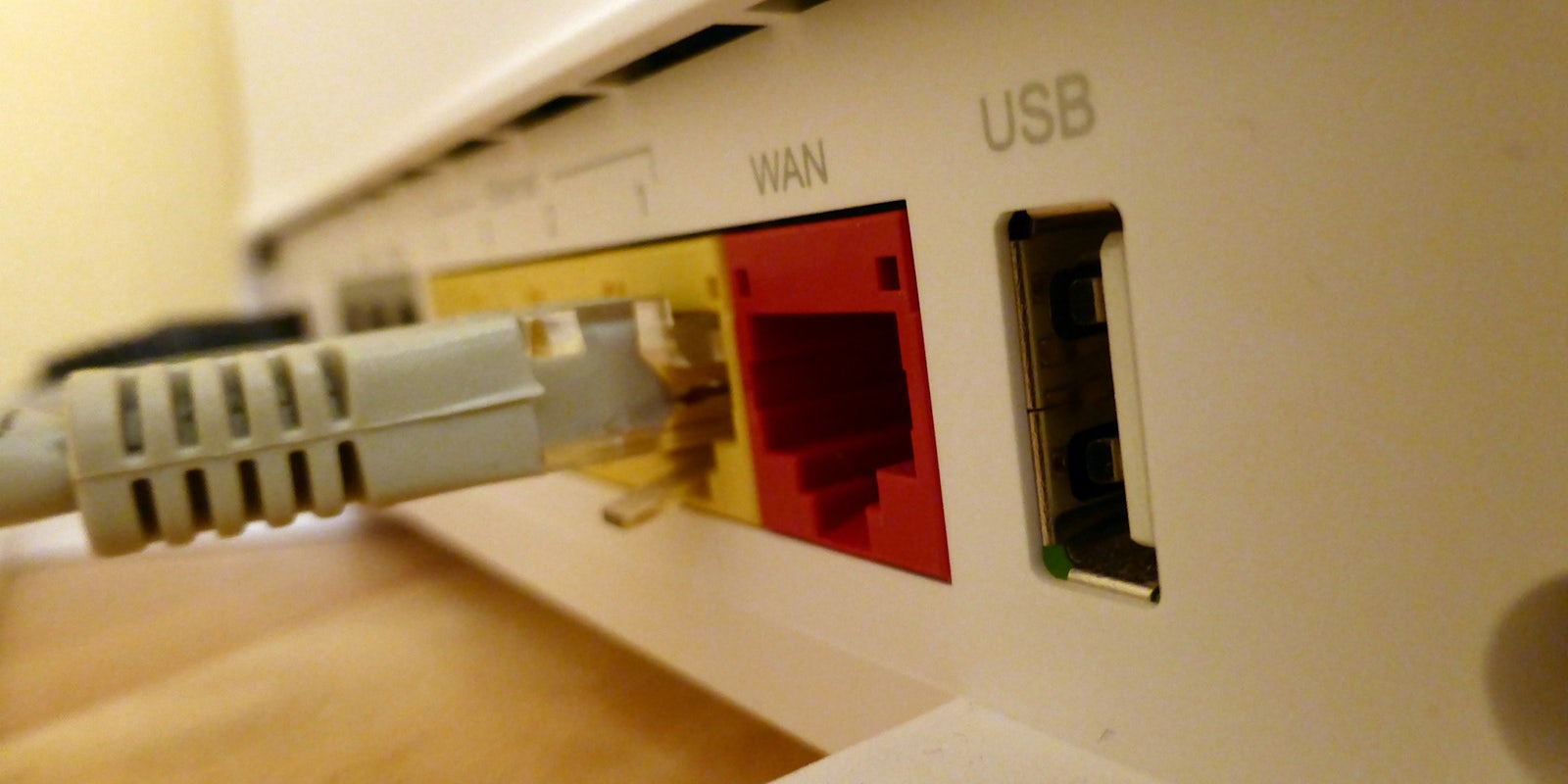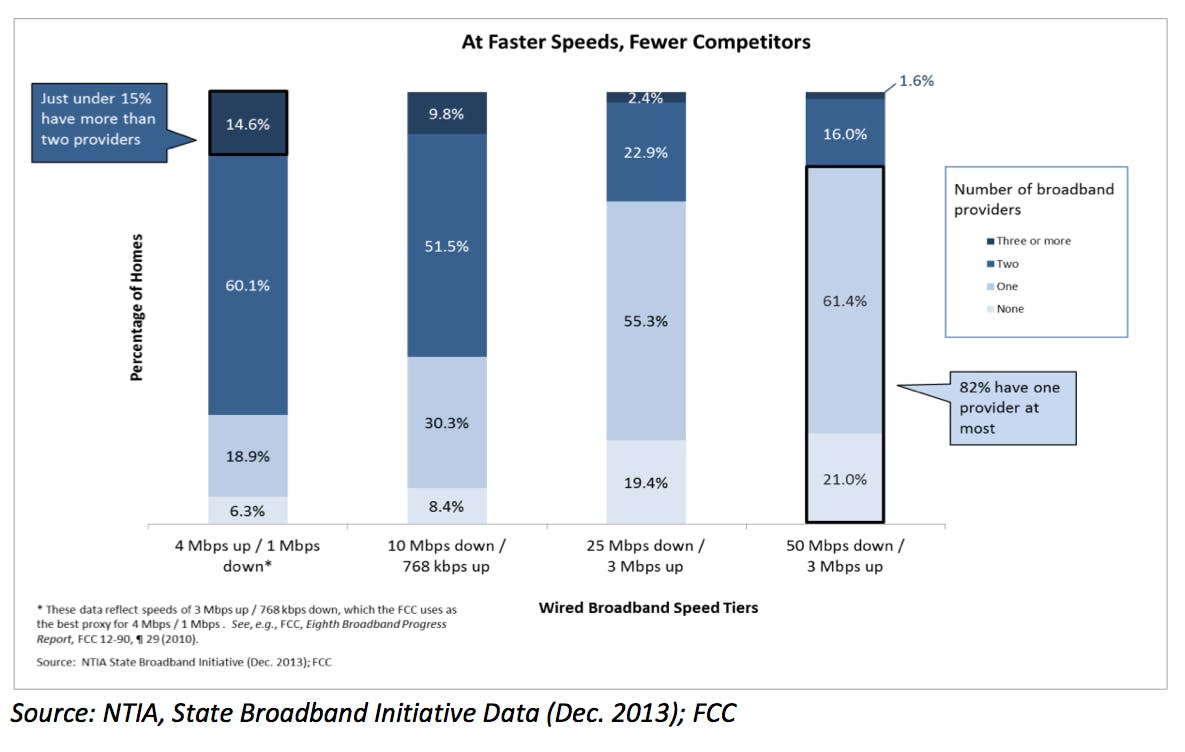The FCC voted Thursday to redefine the term “broadband” to a higher speed threshold, dismissing warnings from the cable industry and signaling its intent to seriously address shortcomings in America’s high-speed Internet.
The commission voted to define broadband as 25 megabits per second downloading and 3 Mbps uploading, relying on its authority under Section 706 of the Telecommunications Act to “take immediate action to accelerate [Internet] deployment…by removing barriers to infrastructure investment and by promoting competition in the telecommunications market.”
FCC Chairman Tom Wheeler took aim at the cable lobby and its conservative supporters in a fiery speech that slammed redefinition opponents for “twisting opinions to avoid the obvious.”
Wheeler contrasted FCC filings opposing redefinition from Comcast, Time Warner, and other cable companies with those companies’ marketing materials. The filings argued that redefinition was unnecessary because Americans had all the speed they needed, while the marketing materials attempted to upsell customers by stressing how much bandwidth common household activities consumed.
“The facts speak for themselves,” Wheeler said. “Consumers are making the decision and sending us a message. Subscriptions to 25/3 [Mbps download/upload] quadrupled in the last three years. Our challenge is not to hide behind self-serving lobbying statements, but to recognize reality.”
“Our challenge is to help make that reality available to all,” Wheeler said, immediately before the commission voted 3-2 to increase the definition.
In December 2013, the National Telecommunications and Information Administration found that only 25 percent of Americans could buy plans at the 25/3 speed tier from at least two competing ISPs. The FCC’s vote is intended to press ISPs to expand their coverage and their service-plan options.
FCC Commissioner Jessica Rosenworcel, who supported redefinition, praised the commission’s conclusion on Twitter shortly after the vote.
Let’s stop dreaming small & instead dream big. Good that @FCC raising #broadband threshold to 25 Mbps–but we should aim higher: 100 Mbps.
— Jessica Rosenworcel (@JRosenworcel) January 29, 2015
Meanwhile, Rosenworcel’s conservative colleague, Commissioner Ajit Pai, argued against the FCC’s decision.
FCC’s Pai: Ultimate goal [in 706 conclusion he opposes] is to seize new, virtually limitless authority to regulate the broadband marketplace
— John Eggerton (@eggerton) January 29, 2015
FCC’s Pai: “The driving factor in defining broadband should be consumer preference.”
— John Eggerton (@eggerton) January 29, 2015
Pai’s legal adviser Brendan Carr continued the pushback.
Why is the @fcc spending over $10 BILLION to deploy something that it now says is not broadband, advanced communications? #FCClive
— Brendan Carr (@BrendanCarrFCC) January 29, 2015
The National Cable & Telecommunications Association, which represents cable companies, had strenuously opposed redefinition in the weeks leading up to today’s vote.
“The definition of broadband should be based on how people use the service,” Brian Dietz, Vice President of Communications and Digital Strategy for the NCTA, said in an interview with the Daily Dot. “Saying that someone has a 15- or 20-megabit broadband service today, and that they wouldn’t have that service tomorrow because the definition has changed, doesn’t make any sense.”
In a four-page filing on Jan. 22, the NCTA’s legal counsel wrote that redefinition would create “divergent legal standards and regulatory objectives.”
“Just last month,” the NCTA letter said, “the Commission determined that an Internet service provider must offer speeds of 10 Mbps/1 Mbps in order to be eligible for broadband-related [Connect America Fund] support.”
FCC Commissioner Michael O’Rielly, the five-member panel’s other conservative, echoed the NCTA’s criticisms of differing standards.
“I look forward to the Commission defending to Congress the second-class-citizen status rendered under this conclusion,” O’Rielly said at Thursday’s open meeting.
In his remarks before the vote, Chairman Wheeler criticized the “divergent legal standards” argument, saying, “10/1 is the minimum that we said we would support [for the Connect America Fund] because we expect there to be more and we have programs in place to deliver more.”
Update 5:51pm CT, Jan. 29: “Mbps” refers to “megabits per second.”
Photo via Sean MacEntee/Flickr (CC BY 2.0)



